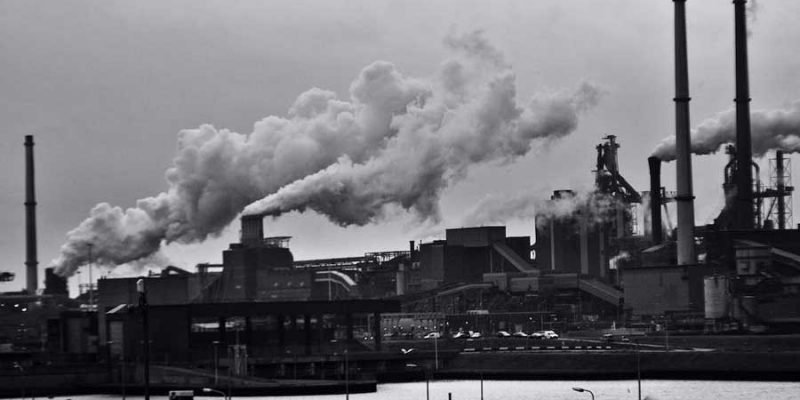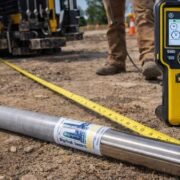The environmental pollution of our planet is an issue that affects everyone. The air we breathe, the water we drink, and even our food supply are all affected by pollution. In fact, it’s estimated that one in four Americans will develop cancer due to environmental factors like toxic chemicals in the air and water. Air pollution alone causes around 12% of deaths worldwide.
So, it’s vital to know your rights when it comes to protecting yourself from harmful pollutants, no matter whether they’re coming from corporations or other individuals. If you’ve been harmed by environmental pollution, you may have legal options available to you if you know how and where to look for help.
To help you out, here’s a step-by-step guide on how you can take legal action against a business or organization that’s polluting the environment.
Research the Company’s Activities
Before taking legal action to stop a company or organization from polluting the environment, you must research the company’s activities. First, find out what kind of business they are. Next, find out where they are located and what kind of pollution they cause. Whether it is dumping toxic waste into the ocean or using harmful chemicals on crops, you will want to know how much pollution they are causing and how long they have been polluting.
Coca-Cola has been found guilty of causing plastic pollution and has been crowned the infamous champion of it for four years in a row since 2018. Their actions have forced them to reduce the number of plastic bottles they produce and use to serve their drinks.
Determine How They Are Violating the Law
The first step in any environmental lawsuit is finding out how the business or organization is breaking a particular environmental regulation or law. It’s not enough simply to say that an entity should have known better. If it weren’t clear that they were doing something wrong, they wouldn’t be liable for damages caused by their actions anyway.
Coca-Cola is constantly polluting the oceans, but not by dumping chemicals. They’re doing so by producing excessive plastic waste. So, knowing this information helped lawmakers take necessary actions and advise the company accordingly.
Once you’ve confirmed that your plaintiff has suffered harm as a result of another party’s activities, two main steps remain before filing suit – determining who exactly was responsible for polluting and confirming whether those actions violated existing laws or regulations. This requires looking up statutes at both federal and state levels. While some laws may apply across borders (for example, many states have adopted California’s stricter standards), others vary from state to state (e.g., air quality standards).
You’ll also want information on which companies must comply with these rules—and what activities fall under each category of “polluting.” For example, one type might cover emissions from factories into nearby waterways but not farms adjacent thereto. Another might delineate how much waste disposal companies can dump each day without having their license revoked by regulators.
Gather Evidence
To take legal action against an organization that’s polluting the environment, you need to gather evidence.
You’ll want to identify the company’s activities that are harming the environment. If a business is dumping garbage into a nearby park, for example, those are its activities. Make sure you know what kind of damage these activities cause—is it just a little bit or a lot? You’ll also want to figure out where this company is located—if they’re down the street from your home and they’re causing harm through their actions, do they have any right to be doing so?
Talk to Other Victims
If you’re not alone, it can be helpful to talk to other victims. You may find that they have some evidence of the pollution (such as photos or videos) and be willing to testify on your behalf. If they are willing to testify, ask them if they would sign a waiver that allows you access to their information and testimony.
If one or more victims are not willing to testify on your behalf, ask them if they would sign a waiver allowing you access to their information. That way, you can build your case without them having any legal liability if something goes wrong with the lawsuit or court case.
The Camp Lejeune Water Lawsuit was successful because of the cooperation from the Camp Lejeune victims with the lawyers. The Camp Lejeune incident led to water contamination in the area, which, in turn, led to many of the residents developing cancer. Thanks to the collective efforts of these victims and the Camp Lejeune lawyers, this lawsuit has worked in their favor, and the victims are soon going to get justice and their due compensation.
Consult With an Attorney Who Specializes in Environmental Lawsuits
If you’re ready to take legal action, the first thing you should do is contact a law firm that specializes in environmental lawsuits. You’ll want to explain your situation in detail and make sure you understand what remedies are available for your case. This can be very complex and confusing, so it’s good to have someone who understands the ins and outs of environmental law on your side.
In addition to explaining your situation, it’s vital to describe what damages you want compensated for — both actual and punitive — as well as what you expect from them (e.g., an injunction prohibiting polluting activities).
Environmental pollution is a serious issue, and it’s crucial to know your rights when standing up against companies that are harming our planet. People should take necessary legal action against polluters to protect our environment and future generations.















Comments